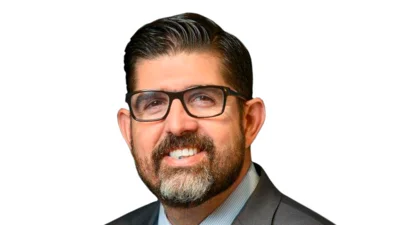U.S. Rep. Matt Gaetz (R-Fla.) | Ike Hayman, U.S. House Office of Photography/House Creative Services | Public Domain
U.S. Rep. Matt Gaetz (R-Fla.) | Ike Hayman, U.S. House Office of Photography/House Creative Services | Public Domain
U.S. Representative Matt Gaetz is calling for the swift passage of the Free Speech Protection Act, a bill he co-sponsored. The bill has encountered roadblocks in three separate House committees, impeding its progress to the floor for a vote.
“The bill has been stalled in three separate committees in the House of Representatives, making it hard to be moved to the floor,” Gaetz told the Florida Record. “Unfortunately, I’m not on any of those committees.”
Gaetz underlined the critical need for the Free Speech Protection Act, asserting that it would prevent federal bureaucrats from influencing social media companies to suppress constitutionally protected speech they disagree with.
“Americans must be able to freely express their opinions without fear of censorship,” Gaetz said. “I would like to see an end to the partnership forged by federal bureaucrats and the private sector to censor online speech. I will keep fighting to ensure digital spaces remain open and free from government overreach.”
Introduced by U.S. Senator Rand Paul of Kentucky, the proposed Free Speech Protection Act is designed to prohibit executive branch employees and contractors from exploiting their positions to censor speech protected by the First Amendment. The legislation would impose severe penalties for executive branch members found guilty of suppressing free speech. Additionally, the legislation includes provisions aimed at increasing transparency and accountability. It would mandate regular, publicly accessible reports from the heads of executive branch agencies outlining communications between these agencies and major tech companies in order to uncover any potential collaborations that may compromise free speech.
To address concerns about the misuse of federal grant money, the bill includes provisions to ensure funds are not improperly used to label media organizations as sources of misinformation or disinformation in order to ensure the diversity of voices in the media.
The bill is currently facing delays despite recent reports by a whistleblower that the Cyber Threat Intelligence League (CTIL), the federal government, and military contractors collaborated to remove truthful dissent from social media and other platforms in order to suppress free speech efforts.
The whistleblower released documents detailing the creation of a "Censorship Industrial Complex," a coalition of over 100 federal agencies and non-governmental organizations working together in order to censor online platforms and citizen speech. The documents detailed the CTIL's expansive efforts to track and report disfavored content on social media, extending beyond censorship to offensive operations influencing public opinion.
Further complicating the landscape, emails released by the House Judiciary Committee reveal a partnership between the Department of Homeland Security (DHS) and Stanford University's Election Integrity Partnership (EIP). Allegations of bias in favor of Democrats and federal pressure on social media companies, influenced by DHS and EIP, have raised concerns about the suppression of truthful information and political opinions leading up to the 2020 election.
Worries about ongoing censorship persist under the Biden administration, as seen in the short-lived Disinformation Governance Board and the Missouri v. Biden lawsuit. The latter, alleging First Amendment violations resulting from censorship, has reached the U.S. Supreme Court, heightening anticipation for its deliberation.



 Alerts Sign-up
Alerts Sign-up